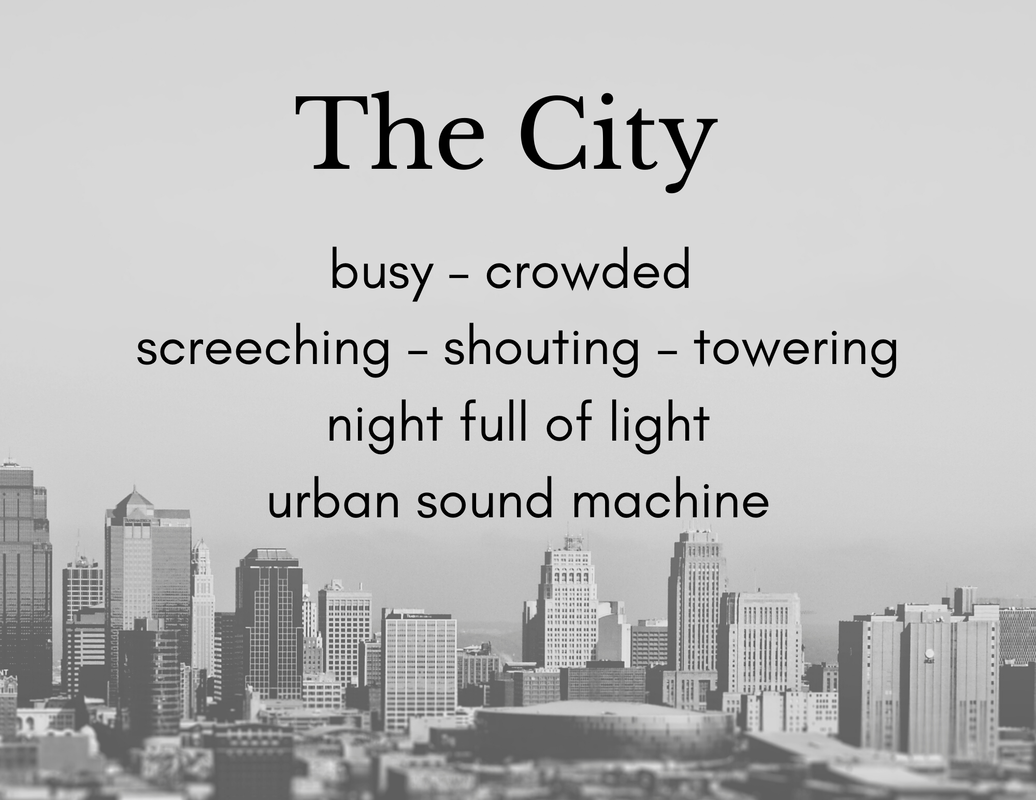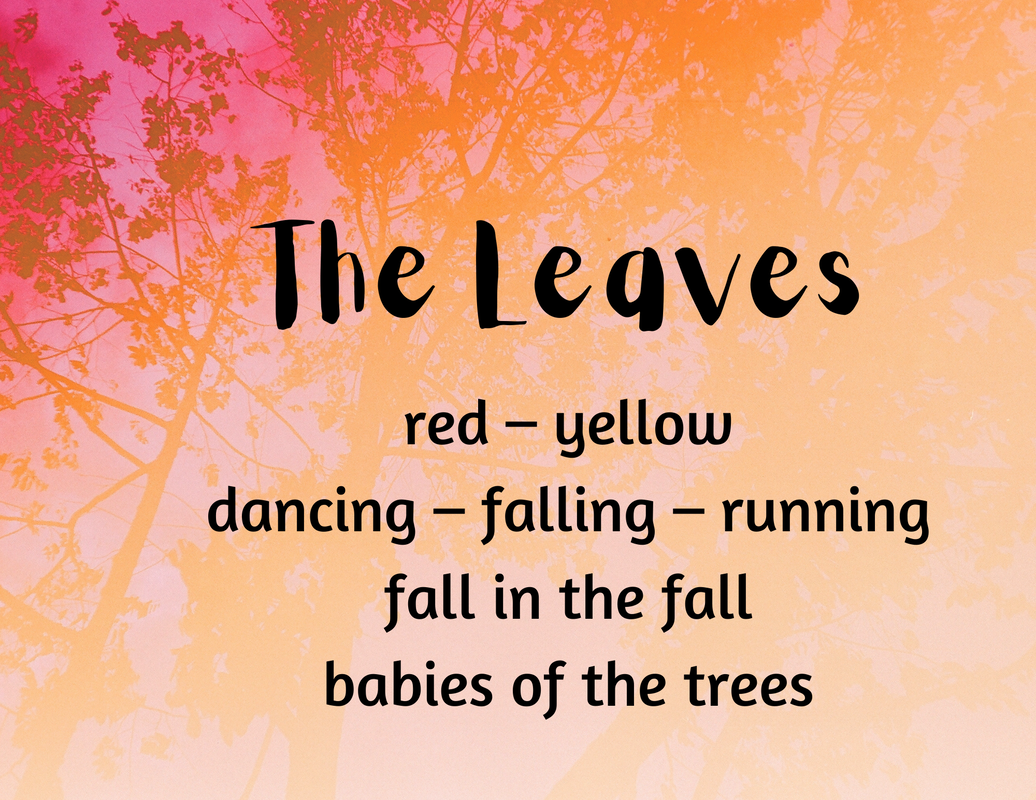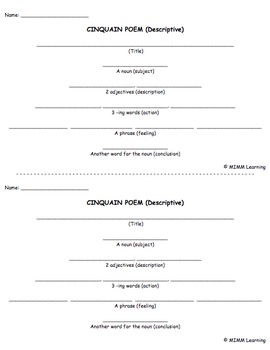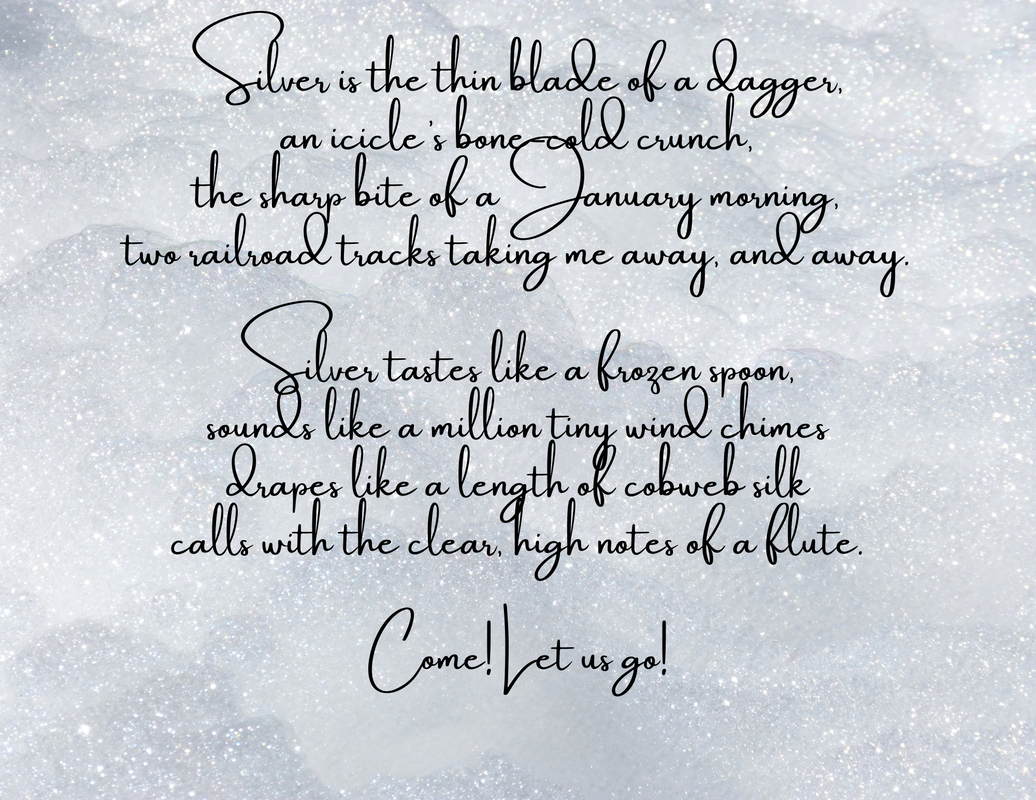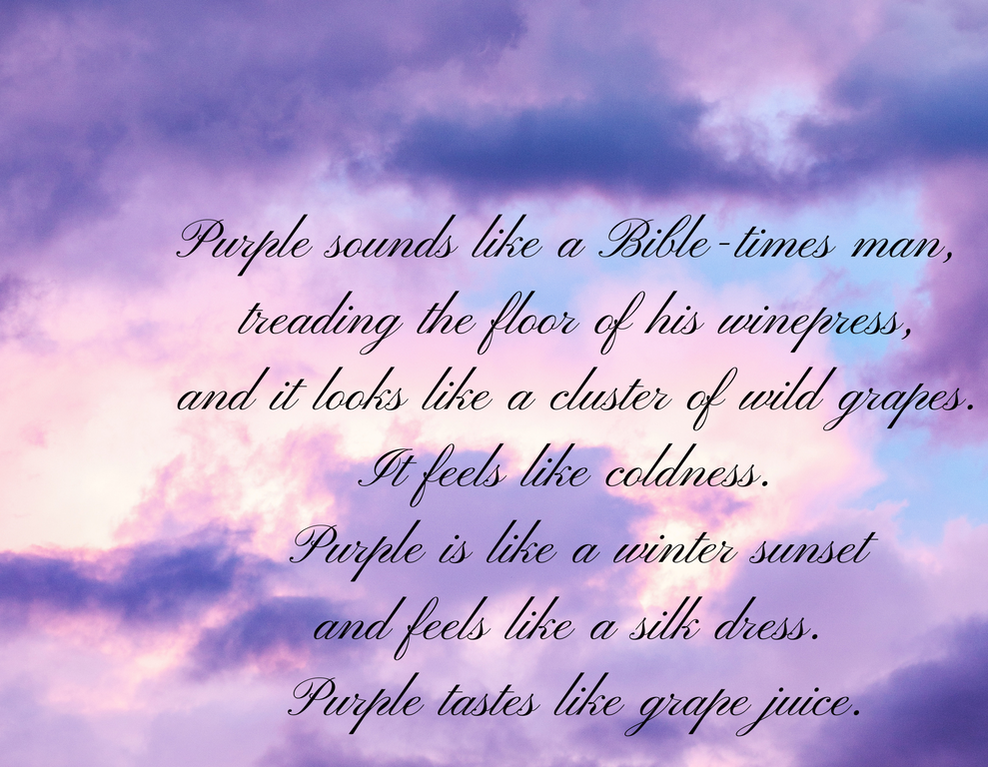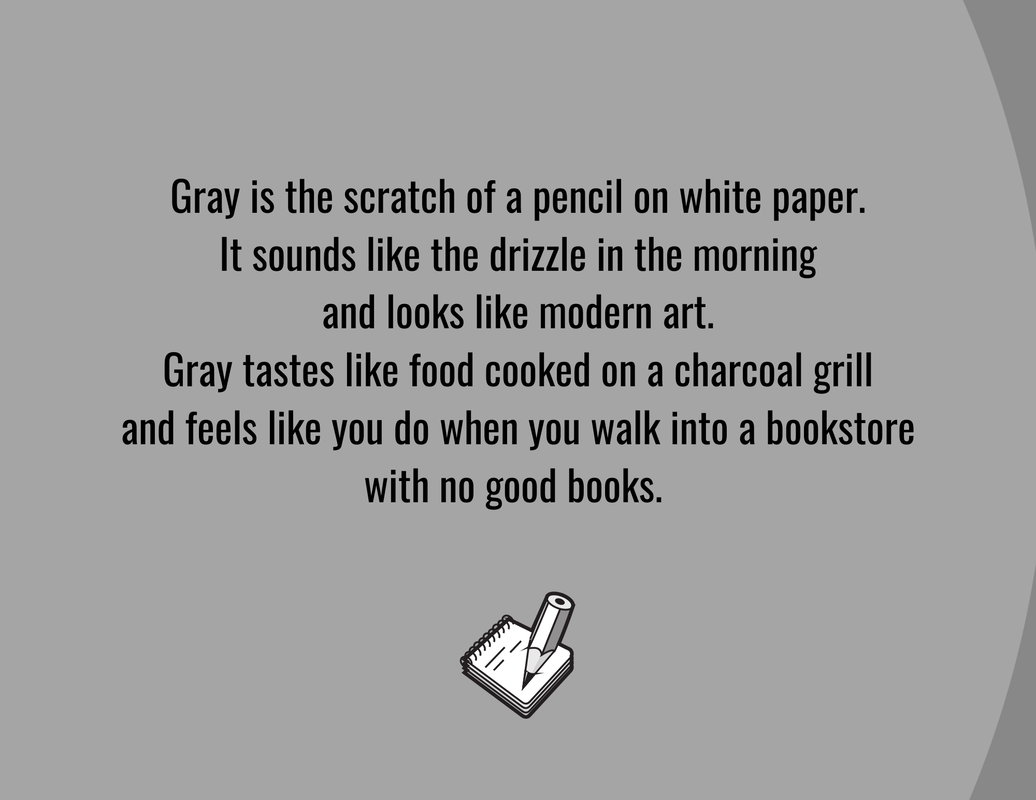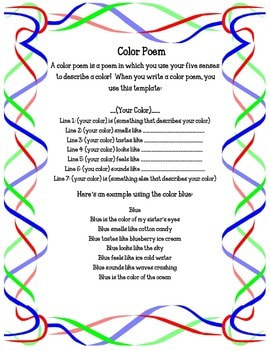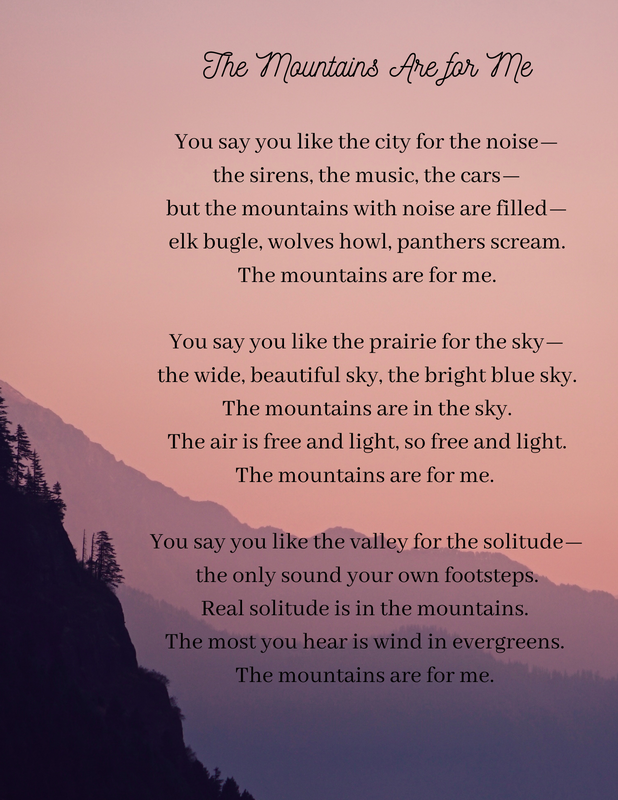|
The word cinquain comes from the Latin word for five. A cinquain must have five lines, but it can have many different variations, each with its own specific pattern. The pattern I chose for my creative writing class looks like this: TOPIC/TITLE ADJECTIVE – ADJECTIVE ING VERB – ING VERB – ING VERB FOUR WORD PHRASE SYNONYM OF TOPIC My current class hasn't done this exercise yet, but here are some of the cinquains my students wrote last year: Try writing your own cinquains (or teaching your class about them) with this free, printable worksheet similar to what I used. (Send me your cinquains if you like. I'm a greedy poetry monster.)
0 Comments
Every Tuesday my class does creative writing, and I like to experiment with different forms of poetry. A few weeks ago we wrote color poems. Choose a color, any color. (We used the names on our crayons to help our selection.) Think about your five senses: how does this color look, smell, taste, sound? How does the color make you feel? Arrange your sense details into poem form. My students seemed to enjoy the assignment and their poems turned out wonderfully. I typed and printed them, everyone chose background paper to match their color, and we hung them on the lunchroom walls (otherwise knows as the Hall of Fame.) Here are a few of my student's poems: Here is a free, downloadable worksheet with a process similar to the way we created our poems. I gave the kids freedom to arrange lines as they pleased, and one student even chose to include a set of rhyming lines. Now, color away. The world could use some poetry and whimsy about now.
Last winter I read about a poetry contest for kids, sponsored by the Poetry Society of Virginia. I suggested my students try for it, but only two kids submitted in time. In March, the president of the society contacted me with the news that one of my students had won honorable mention in his age category for his poem titled "The Mountains Are for Me." They said they had a lot of poems in that particular category, but "The Mountains Are for Me" topped the majority. How exciting is that! The win kind of got lost in the whole covid/homeschool mess, unfortunately, but last week a large manila envelope arrived in our school mailbox. I opened it to find a certificate for honorable mention in the contest. I hadn’t realized there’d be an official certificate, so I was excited to send it home to my now former student. This is our school's first brush with literary fame, but maybe it's not the last. I've had the privilege of teaching some amazing writers who I believe will go on to do great things. I'll be the hoarse-from-cheering person on the sidelines, the one with sore-from-clapping hands. Without further ado, here is the winning poem, used with the author's permission: Sigh. I'm a loyal prairie girl but he almost convinces me. I especially like the strong verb choices in the first stanza and the use of repetition. (I'm a sucker for random, well used repetition. "Stopping by Woods on a Snowy Evening" anyone?) Another thing I love is how the prairie has a big sky, but the mountains own the sky. (Again, I'm a prairie girl, but I still appreciate the argument.) Any kids reading this post? Try your hand at poetry. Send it to me, if you like. I'll be posting some poem worksheets over the next months, things I use in my classroom. Submit your poems to contests, write in your super-secret notebook, share a poem with friends... writing isn't a gift unless you use it. :) On another topic, the October issue of Cricket is now available free online, for those of you who've asked where you can read "Stork Time" in its entirety. (Scroll down to page 24 for my story.)
|
Archives
April 2021
Categories
All
|
